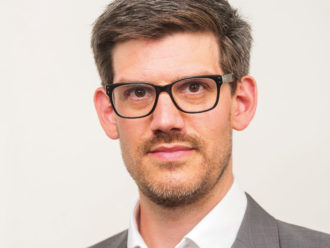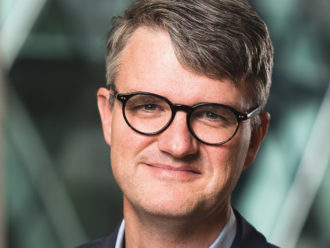But with an index it is possible for institutional investors to make a hedge.
Yes, but the question is whether the hedge is worthwhile for a long-term investor; hedges can be very expensive and I question the viability of hedges. I think pension funds should be taking a longer term view. They have requirements of five, 10, 15, 20 years out. They should not be doing hedging, they should be investing in good companies. The trouble is all these guys are trying to beat the index in one month, two months, five months. Who cares? You measure me against the index and against my peers; I don’t want to be like my peers, I want to be different than my peers. I want to do something more useful. You get questions from clients saying, ‘why did this underperform? Why did that outperfrom?’ What they should be asking is: ‘which of your companies have good corporate governance? Which companies are in a good industry?’ And so forth.
According to reports, the slums in Brazil now have flat screen TVs and people are even buying their socks on their credit cards. Is there any fear that there could be a credit bubble?
Yes, you could have a big bust. But, a lot of this credit is being given out by the government owned banks. So, they would probably adjust the terms and conditions and tolerate non-performing loans. The private banks will not tolerate that, but the government banks, like the Banco do Brasil which is the largest bank in the country, will just write it off. So, it would be a crisis in that sense.
Is there much opposition against the communist party in China?
Well, you’ve got a population of 1.3 billion now in China. The reality is you are going to find people that are not happy about the situation who want more freedom or less censorship. But if you add it all up, you realise that this communist party has done a pretty good job, because what they’ve done is conscientiously gone to the schools to select the very smartest pupils to become members of the party. That does not mean they are not corrupt, but they are fairly intelligent. Of course you can have corruption creeping in, but the new leadership has stated very clearly about cutting down corruption. But frankly, I do not see this general uprising taking place in China.
Do you agree with the model?
What I have found out in these countries, and it’s probably true for everywhere in the world but if people can eat, have a roof over their head and have some money for entertainment, they are happy as long as the government does not bother them too much. And that is true in China; if you keep your nose out of politics you have a very free environment. In many ways I feel more free in China than I do when I visit the US because the US has rules, regulations, lawsuits. You get sued for this, sued for that. In China you are not going to get that.
Maybe a revolution in China will come from the land workers or the farmers.
The five-year plan is to reduce the number of people in the countryside and move them into the cities because they realise they can feed and clothe people more efficiently in a city than in the countryside.
Control it better?
Yes. The party understands it can feed and sustain people’s lives more efficiently in cities. In cities, education and control is easier for the government. So I think you are going to see a big urbanisation in China.”
What about Russia?
There’s no problem getting money in and out of Russia. We’ve never had any experience where the government confiscated assets in Russia.
But what about Yukos Oil, whose former controller Mikhail Chodorkowski is now in prison?
Yukos we didn’t invest in, but that was a very unusual situation and I doubt if you will see that again anytime soon.
One idea is that as soon as he [Chodorkowski] gets out of jail, he could go into politics and succeed Putin. What do you think?
I doubt it.
That he will ever come out of prison, or that he…
Both. My feelings are Russia is moving towards a more liberal environment. But it’s going to be at its own pace, it’s not going to happen quickly. It’s gradually moving in that direction because it realises that this is the way to go to keep people, to encourage enterprise. That’s why Putin now is planning to privatise many of the state-owned enterprises. That tells you something.
Is it important for you when you analyse companies for the government to have a stake in these companies?
In China the government companies tend to be very good for corporate governance. They protect the minority shareholders very nicely. In Brazil it is terrible; the government companies treat minorities very badly. So it depends on the country. In Russia, it’s a mixed picture. They are now paying more attention to corporate governance. In the past, they didn’t so much. Now it’s getting better.
How are you able to approach corporate governance in detail – not just in Russia but in all the emerging markets you invest in? How important is it to have people on the ground?
We have 18 offices around the world and 54 outlets, so we are constantly meeting companies. There have of course been cases where we overlook something, but being out there you get a good idea of what is going on.




Comments